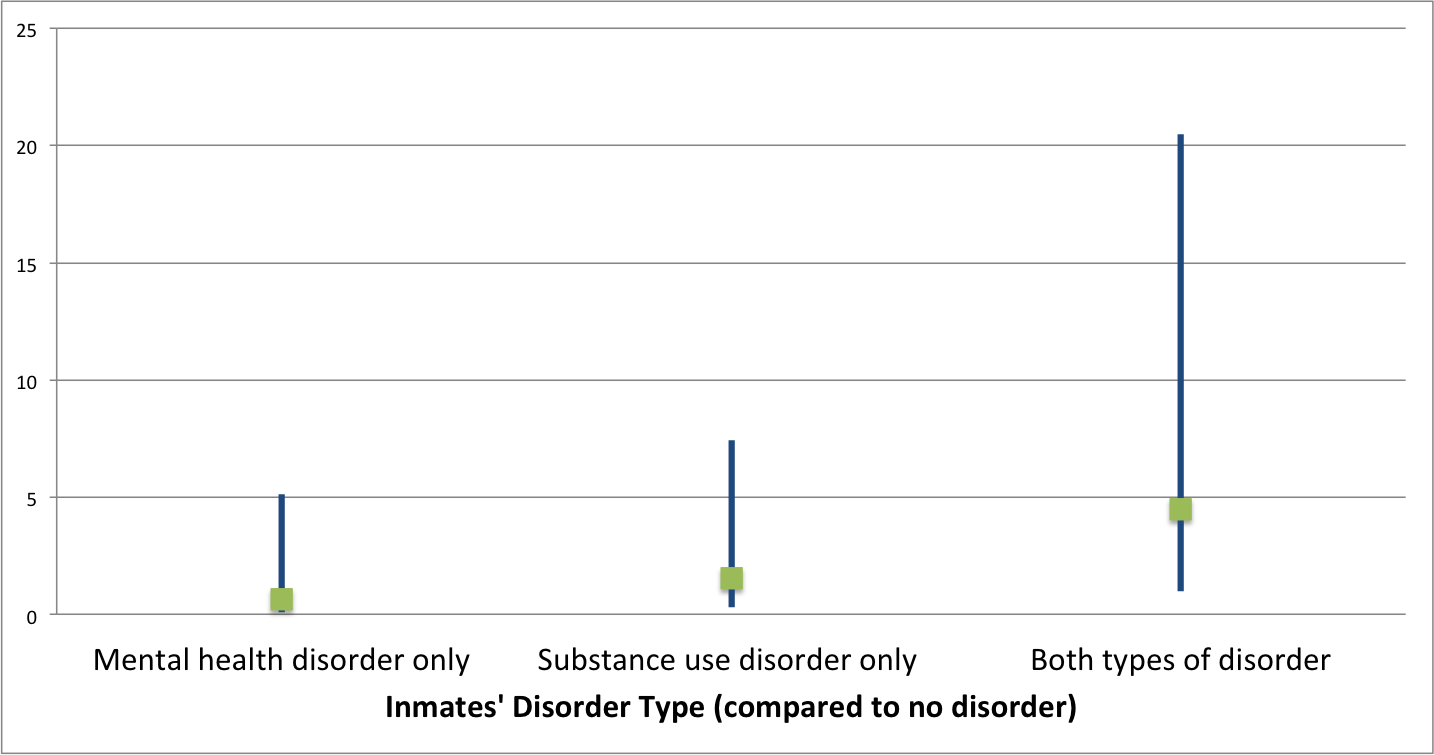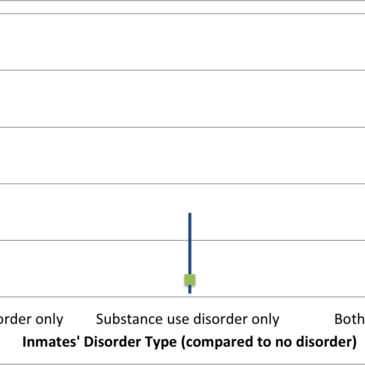As we discussed in last month’s Special Series, mental illness and substance use disorders (SUD) are common among American prisoners. Prisoners living with mental health conditions and SUDs might have extra difficulty coping with stressful prison conditions and following rules. However, harsh punishments for misconduct—especially segregation—might make mental health and SUD symptoms worse. Therefore, it’s important to understand how prisons respond to misconduct among these prisoners. Some research suggests that correctional officers treat symptoms of mental health problems as intentional misconduct, especially among women (Houser, Belenko, & Brennan, 2012). Today’s STASH examined whether female prisoners with mental health or substance use disorders—or both types of conditions—are punished especially harshly (Houser & Belenko, 2015).
Methods
- Participants were all the women (N = 211) from Pennsylvania state prisons who were charged with a minor in-prison offense, but not a serious offense, between January 2007 and July 2009.
- Using prison health records,1 the researchers classified participants into one of four groups:
- No mental health or SUD (7.6% of the sample)
- Mental health disorder only (6.6% of the sample)
- SUD only (16.1% of the sample)
- Both a mental health and a SUD (69.7% of the sample)
- The researchers used prison records to determine whether each woman had ever received a serious disciplinary action during this time period.
- Serious disciplinary actions include cell restrictions, disciplinary custody, or revocation of pre-release status.
- Because none of the women had been charged with a serious in-prison offense, a severe disciplinary action would represent an unduly harsh punishment.
- The researchers used logistic regression to study whether certain groups of participants were more especially likely to receive unduly harsh punishment. They statistically controlled for incarceration length, demographic characteristics, criminal history, whether participants were imprisoned for violent offenses, and other variables.
Results
- Women with both a mental health and a SUD were over 4 times more likely to receive an unduly harsh punishment than women with no disorders. (See Figure 1.)
- Women with either a mental health or a SUD were not more likely than those without disorders to receive an unduly harsh punishment.

Figure. Confidence intervals (blue lines) and odds ratios (green boxes) showing the relative probability of receiving a severe disciplinary action. Click image to enlarge.
Limitations
- This was a fairly small study, with unequal comparison groups. This might have made it difficult for the researchers to detect statistically significant
- Because they conducted secondary data analysis of prison records, the researchers did not have access to some potentially important information, such as whether harsh punishments exacerbated the symptoms of mental health or substance use disorders.
- The study was conducted within a single state, which means that the findings cannot necessarily be applied to other states and outside the U.S.
- The researchers relied on classifications of minor/serious offenses, which could have been mistaken in some instances.
Conclusions
Incarcerated women who committed only minor infractions were more likely to receive harsh punishments if they had both mental health and substance use disorders, compared to women without either type of illness. It is possible that the correctional officers saw these women as particularly difficult and incompliant. Whatever the cause, harsh punishments—especially confinement—could produce panic, anxiety, rage, depression, and hallucinations (American Psychological Association, 2014) and could impair mental health and substance use disorder treatment.
— Heather Gray
What do you think? Please use the comment link below to provide feedback on this article.
References
American Psychological Association. (2014). Incarceration nation: The United States leads the world in incarceration. A new report explores why — and offers recommendations for fixing the system. Retrieved from: http://www.apa.org/monitor/2014/10/incarceration.aspx
Houser, K., & Belenko, S. (2015). Disciplinary responses to misconduct among female prison inmates with mental illness, substance use disorders, and co-occurring disorders. Psychiatric Rehabilitation Journal, 38(1), 24-34. doi: 10.1037/prj0000110
Houser, K., Belenko, S., & Brennan, P. (2012). The effects of mental health and substance use disorders on institutional misconduct among female inmates. Justice Quarterly, 29, 799-828.
________________
[1] The records included formal psychiatric diagnoses and validated assessments.




